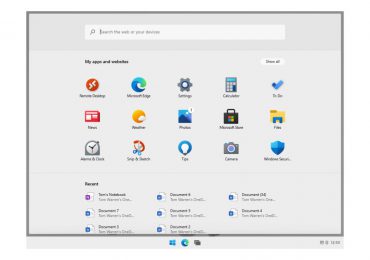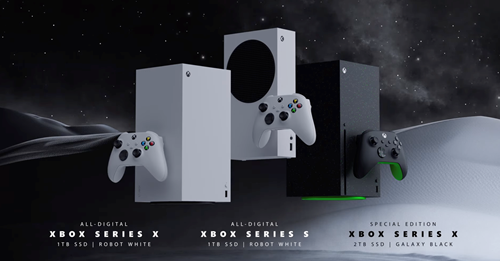After years of waiting, it looks like Microsoft now has a true answer to Chrome OS. A new and near-final version of Windows 10X has leaked. It offers a first look at the changes Microsoft has made to the upcoming operating system to get it ready for laptops. Windows 10X first started off life as a variant of Windows 10 designed for dual-screen devices. It was supposed to launch alongside Microsoft’s Surface Neo, a tablet-like device with two separate nine-inch displays that fold out to a full 13-inch workspace.
Windows10X out-of-box
Microsoft revealed last year that Windows 10X is now being reworked for “single-screen” devices like laptops. While the company has spent years differentiating Windows 10X for foldable and dual-screen hardware, it now looks and feels more like Chrome OS than ever before.

The latest version that has leaked is a near-final form of what will ship on Chromebook-like devices later this year. Windows 10X isn’t an operating system you will upgrade to, or an update that will appear for existing machines. It will only ship on new hardware, and it’s a lightweight version of Windows designed for those who might be tempted to buy a Chromebook instead.
Windows 10X already looked a little Chrome OS-like on dual-screen devices. Now, it’s even more apparent now that it’s designed for single-screen laptops instead. Microsoft has simplified almost every area of Windows inside Windows 10X. So, it feels like a portal to the web rather than a portal to Windows apps.
The new Start menu
The Start button is now centered on the taskbar, with a Start menu that acts like a launcher. So, Windows10X is the answer to ChromeOS. It doesn’t have the Live Tiles found on Windows 10; instead, it’s a list of apps and recent documents. You can also search for apps, documents, or even content on the web through Microsoft’s Bing search engine.
The comparisons to Chrome OS are immediately obvious here, with a launcher and the focus on web apps. You can even install Progressive Web Apps (PWAs) from the built-in Chromium Edge browser and pin them to the taskbar.
This Windows 10X taskbar is also an area of the OS that has been massively simplified. You might be used to seeing lots of system tray icons from apps, but these are nonexistent in Windows 10X. Instead, there’s a simple Action Center that displays the time and pops out to reveal quick settings like shutting a machine down, enabling a VPN, connecting displays, or managing the volume. This also includes access to notifications and an updated widget to control media playback.

Windowing in Windows 10X has also been simplified compared to Windows 10. You can drag and drop apps to run them side by side. There’s no way to allow apps to freely resize. As a result, the middle button you’re used to seeing in the top right-hand side of apps (which switches between full-screen and windowed modes) has been removed in 10X. You can simply minimize apps or close them here. Laptops that ship with Windows 10X will also have gesture trackpad support for multitasking apps.
File Explorer
Microsoft wants Windows10X as the answer to ChromeOS. Microsoft has also been working on a modern version of File Explorer in Windows 10X. It’s primarily designed as a way to access OneDrive cloud files, but you can also manage downloaded files here or ones from USB storage. There’s no way to access local files in this new File Explorer, as 10X is primarily designed for cloud storage.
:no_upscale()/cdn.vox-cdn.com/uploads/chorus_asset/file/22235026/WhCqwih.png?w=640&ssl=1)
It appears that Microsoft might not be shipping desktop app support in Windows 10X, at least initially. Microsoft has built a container technology to run traditional desktop apps in a lightweight virtual machine. This was originally designed to be used to ensure legacy apps worked properly with dual-screen devices and didn’t hit their battery life or interfere with how apps are displayed on multiple screens.
Microsoft is still working on this container technology, and it appears as a developer-only mode in this latest version of 10X. That could mean end users won’t be able to install regular desktop apps on Windows 10X when it ships. Either way, it’s clear Microsoft is focusing on a combination of apps from the Microsoft Store here as well as web apps.
In some ways Windows 10X feels like a preview of some of the UI and UX changes we’ll likely see in regular Windows 10 later this year. Microsoft is planning a “sweeping visual rejuvenation of Windows,” which will include a modernized Start menu, File Explorer, and built-in apps that make the overall Windows 10 UI feel more consistent.
In conclusion
Microsoft still hasn’t officially confirmed when Windows 10X will ship, or which laptop manufacturers will be launching devices with this OS variant. It’s clear this is a more direct attempt to challenge Chromebooks, after Microsoft has tried for years to awkwardly position Windows 10S as an alternative. That project failed and turned into a simple S Mode. In contrast, Windows 10X feels like a much bigger effort to recreate the simplicity of Chrome OS with the added benefit of Microsoft services and apps. It seems that the new Windows10X is the answer to ChromeOS.





2 thoughts on “Windows10X is the answer to ChromeOS”